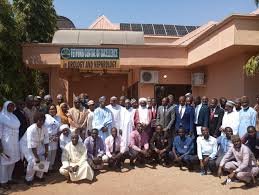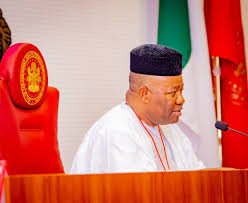The Socio-Economic Rights and Accountability Project (SERAP) has called on the World Bank to suspend issuing loans to Nigeria’s 36 states due to allegations of mismanagement of public funds, including loans obtained from the institution.
In a letter dated 25 November 2023, SERAP specifically requested that the bank’s President, Ajay Banga, conduct a prompt, transparent, and effective investigation into the spending of loans and other facilities by Nigeria’s state governors. The organization urged the bank to suspend any loans and funding if there is credible evidence of mismanagement or diversion of public funds by any of the states.
SERAP further asked the World Bank to halt further loan applications and funding to the 36 states until satisfactory explanations are provided regarding the spending of loans and other facilities obtained from the bank and its partners.
In a statement issued by SERAP’s deputy director, Kolawole Oluwadare, the organization emphasized that the World Bank and its partners cannot continue to provide loans and funding to states where there are credible allegations of mismanagement or diversion of public funds. The statement highlighted concerns about the potential risks of mismanagement or diversion of funds associated with the bank’s investments in many of Nigeria’s 36 states, emphasizing that it is neither appropriate nor responsible lending to provide loans that are subsequently misspent.
Citing data from Nigeria’s Debt Management Office (DMO), SERAP revealed that the total public debt portfolio for the country’s 36 states and the Federal Capital Territory amounts to N9.17 trillion. Additionally, the organization stated that the Federal Government’s total public debt portfolio stands at N78.2 trillion.
SERAP also urged the chief of the World Bank to demand a clear and expressed commitment from Nigeria’s 36 governors to address credible allegations of mismanagement or diversion of public funds in their respective states.
The call by SERAP to suspend loans to Nigeria’s states highlights concerns about the need for transparency, accountability, and proper financial management in the utilization of public funds, aiming to ensure that loans and resources allocated for developmental purposes are used effectively for the benefit of the Nigerian people.






















